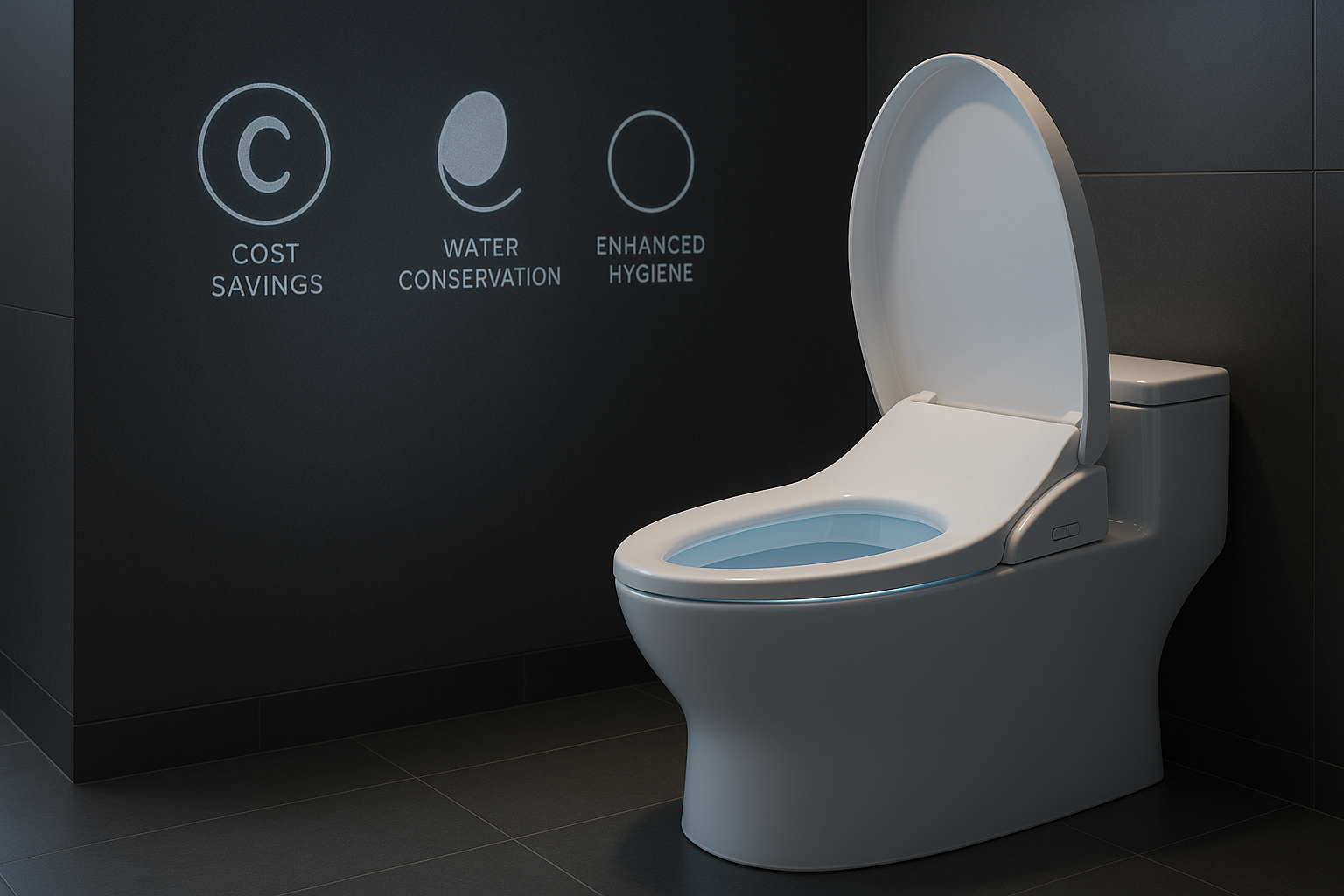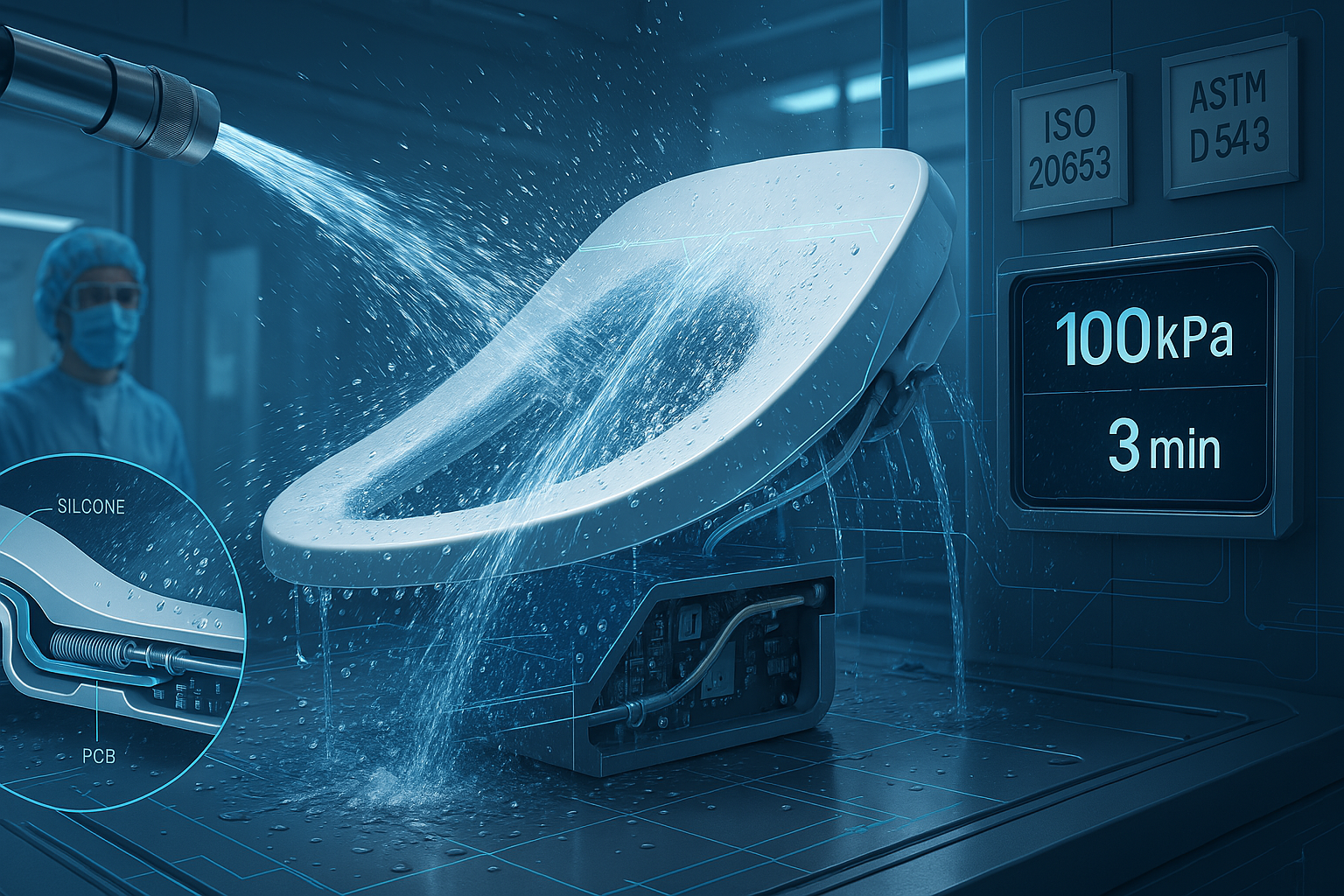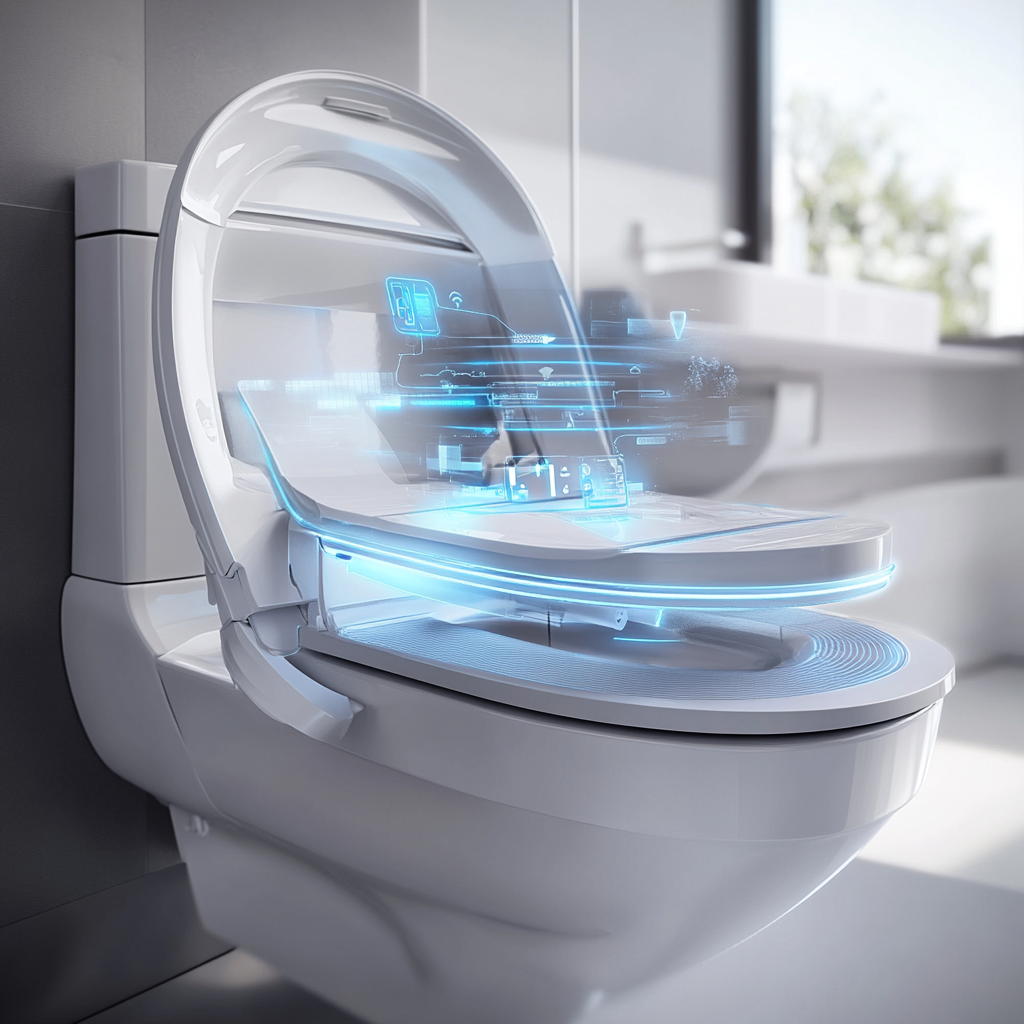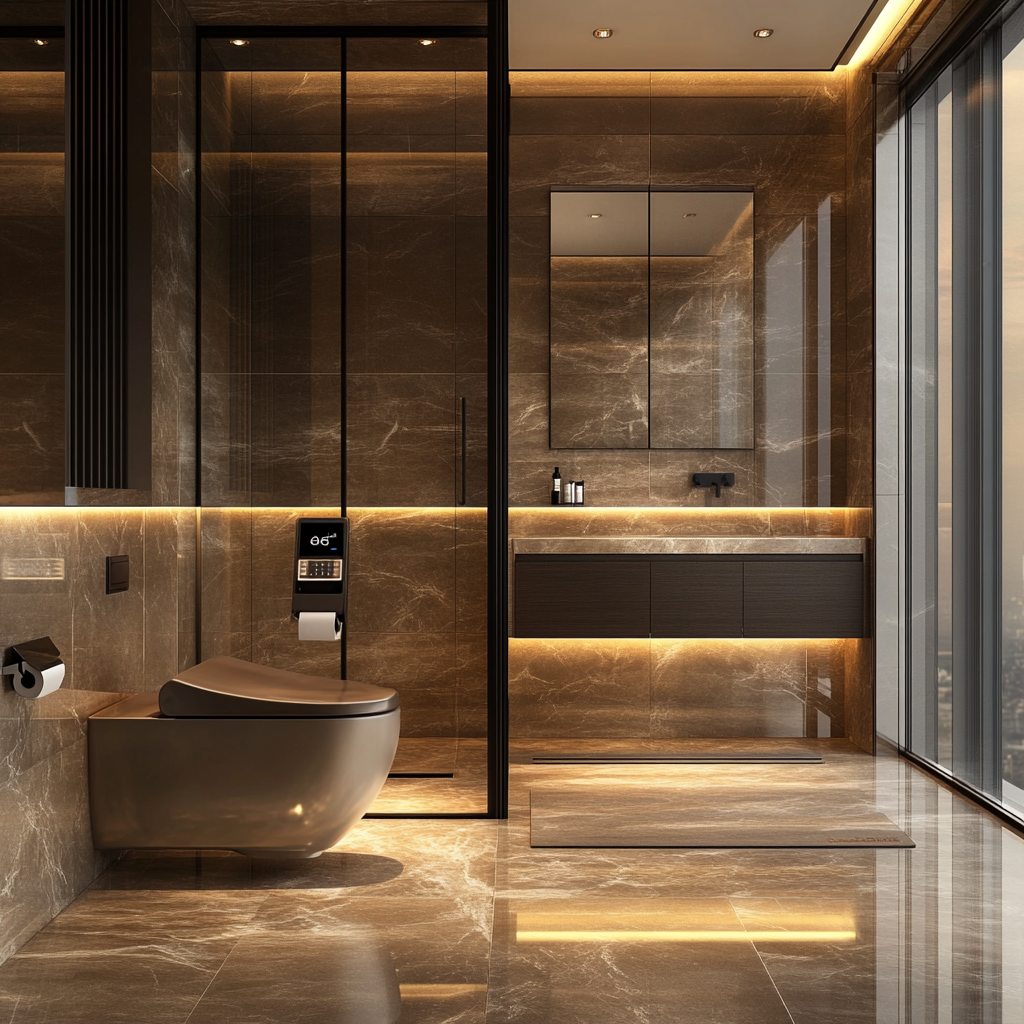The Internet of Things (IoT) is transforming industries across the globe, and the smart toilet seat sector is no exception. By integrating IoT technology, manufacturers are creating products that are more intelligent, efficient, and user-friendly than ever before.
For businesses in the hospitality, healthcare, and real estate sectors, IoT-enabled smart toilet seats offer a unique opportunity to enhance customer experiences and streamline operations. Let’s explore how IoT is shaping the future of smart toilet seat technology and why it matters.
What is IoT, and How Does It Apply to Smart Toilet Seats?
IoT refers to the network of physical devices connected to the internet, enabling them to collect and exchange data. In the context of smart toilet seats, IoT allows for advanced features like remote control, real-time monitoring, and predictive maintenance.
Connected Features
IoT-enabled smart toilet seats can be controlled via smartphone apps or voice assistants, offering users unparalleled convenience. For example, users can adjust seat temperature, water pressure, and bidet functions without touching the toilet.
Data Collection and Analysis
These devices can also collect data on usage patterns, water consumption, and maintenance needs. This information can be analyzed to improve product design and optimize user experiences.
Benefits of IoT in Smart Toilet Seats
The integration of IoT technology brings numerous benefits to both users and businesses. These advantages are driving the adoption of smart toilet seats in various industries.
Enhanced User Experience
IoT-enabled smart toilet seats offer a level of customization and convenience that traditional models cannot match. Users can save their preferred settings, ensuring a personalized experience every time.
Improved Maintenance and Efficiency
IoT technology allows for predictive maintenance, where the system can alert users or facility managers about potential issues before they become major problems. This reduces downtime and maintenance costs, making it a valuable feature for commercial applications.
Applications in Commercial Spaces
IoT-enabled smart toilet seats are particularly well-suited for commercial spaces, where they can enhance user experiences and improve operational efficiency.
Luxury Hotels and Resorts
High-end hotels are adopting IoT-enabled smart toilet seats to provide guests with a luxurious and comfortable experience. Features like remote control and personalized settings can elevate a hotel’s reputation and attract discerning travelers.
Healthcare Facilities
In healthcare settings, hygiene is paramount. IoT-enabled smart toilet seats with self-cleaning and sterilization features are helping hospitals and clinics maintain high standards of cleanliness.
Sustainability and Water Efficiency
IoT technology is also playing a key role in promoting sustainability in the smart toilet seat industry.
Water-Saving Features
Many IoT-enabled smart toilet seats come with water-saving modes that reduce water usage during bidet functions. Some models even use advanced sensors to adjust water flow based on user preferences, ensuring minimal waste.
Energy Efficiency
IoT technology can optimize energy consumption by adjusting settings based on usage patterns. For example, a smart toilet seat might lower its energy usage during periods of inactivity.
The Future of IoT in Smart Toilet Seats
As IoT technology continues to evolve, its applications in the smart toilet seat industry are expected to expand.
Integration with Smart Home Ecosystems
In the future, IoT-enabled smart toilet seats will become an integral part of smart home ecosystems. They will be able to communicate with other devices, such as smart mirrors and showers, to create a fully connected bathroom experience.
Advanced Health Monitoring
IoT technology will also enable more advanced health monitoring features. For example, smart toilet seats might be able to detect early signs of health issues and alert users or healthcare providers.
Market Growth and Opportunities
The IoT-enabled smart toilet seat market is poised for significant growth in the coming years.
Global Market Trends
According to MarketsandMarkets, the global IoT market is expected to grow from 300.3billionin2021to300.3billionin2021to650.5 billion by 2026, at a CAGR of 16.7%. This growth is driven by increasing consumer awareness and technological advancements.
Emerging Markets
While IoT-enabled smart toilet seats have traditionally been popular in developed markets like Japan and the United States, they are now gaining traction in emerging markets. Countries like China and India are seeing increased demand, driven by rising disposable incomes and a growing focus on hygiene.
Conclusion: Embracing the Future of Smart Toilet Seats
IoT technology is revolutionizing the smart toilet seat industry, offering numerous benefits for users and businesses alike. From enhanced user experiences to improved maintenance and sustainability, IoT-enabled smart toilet seats are setting new standards for modern bathrooms.
For businesses, staying ahead of these trends is essential to meeting customer expectations and maintaining












